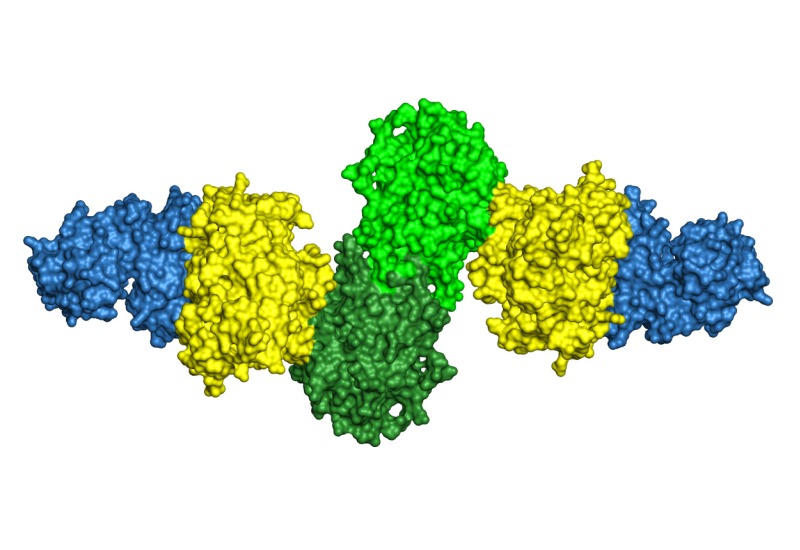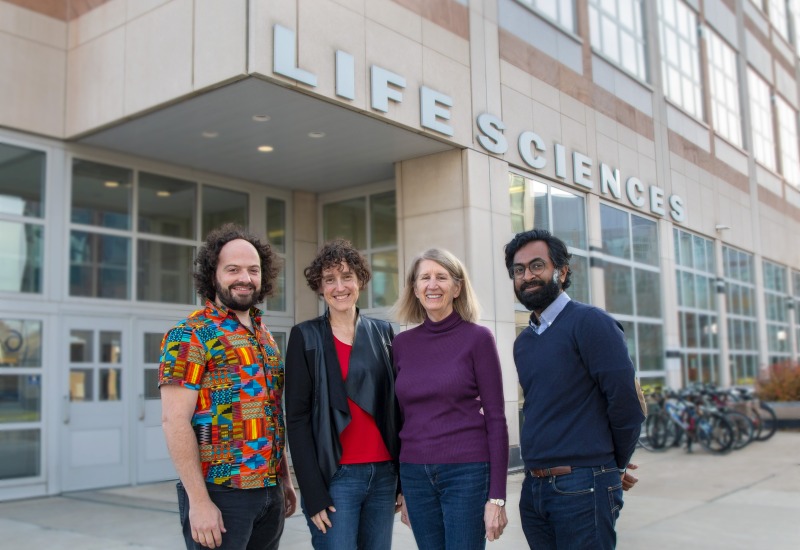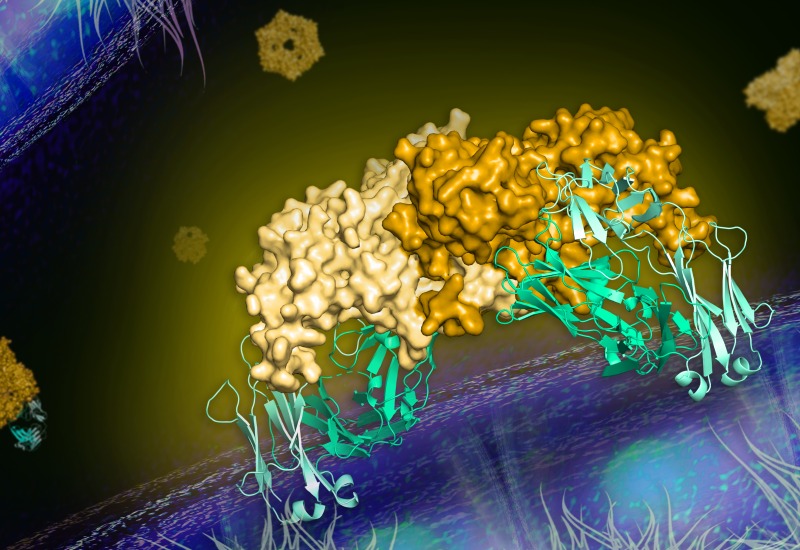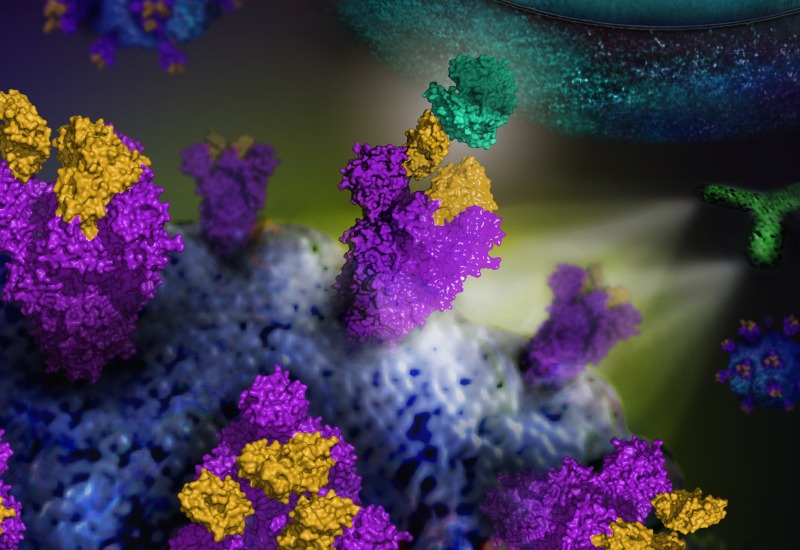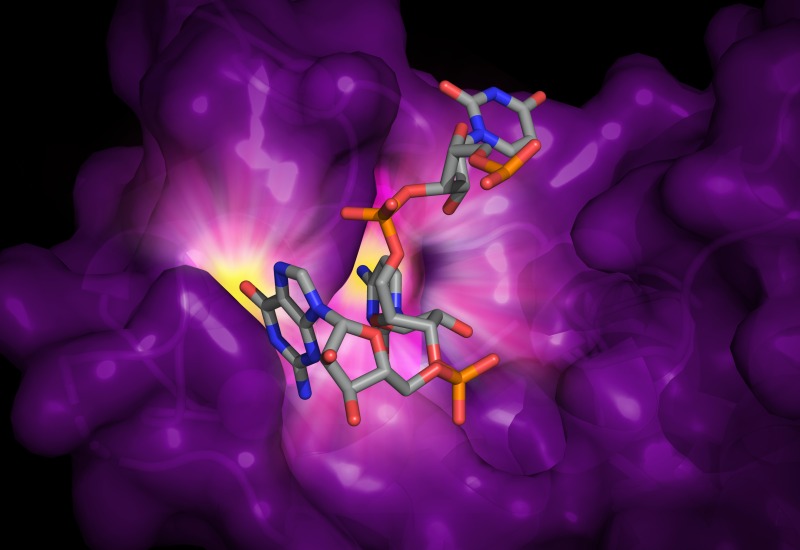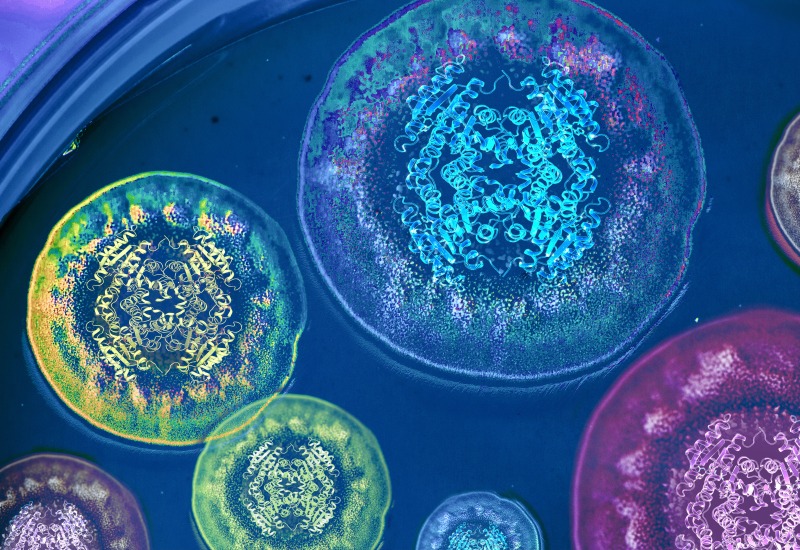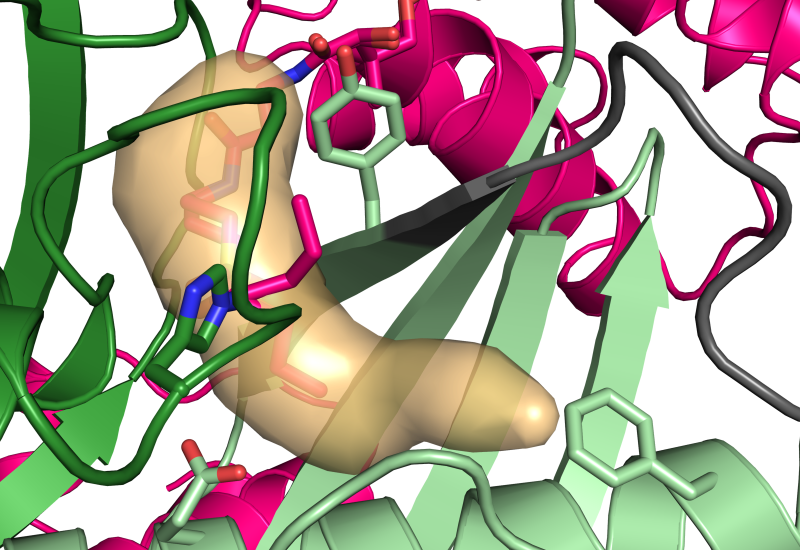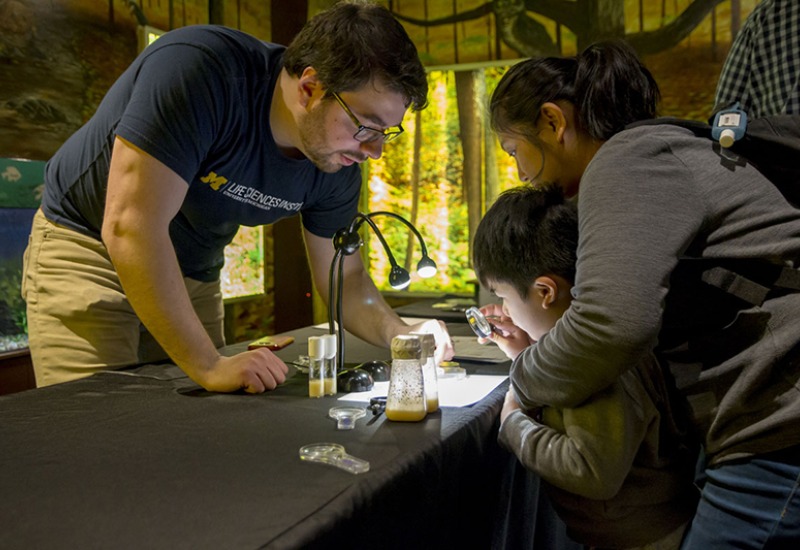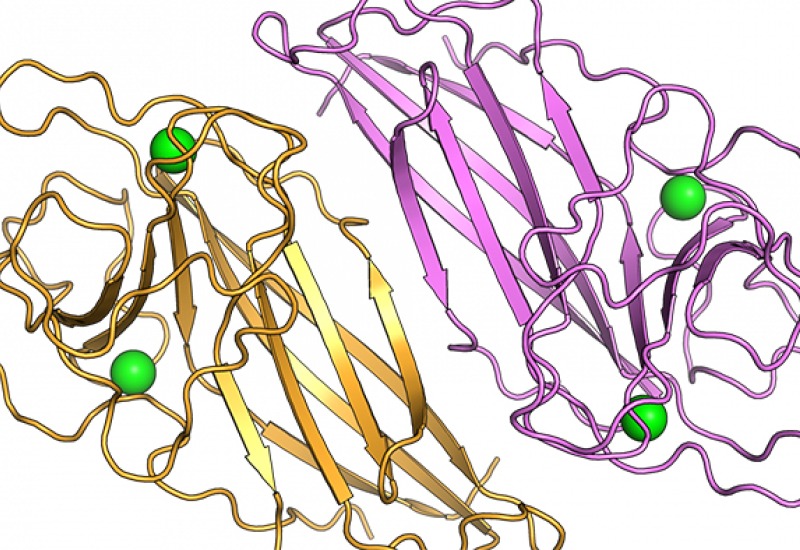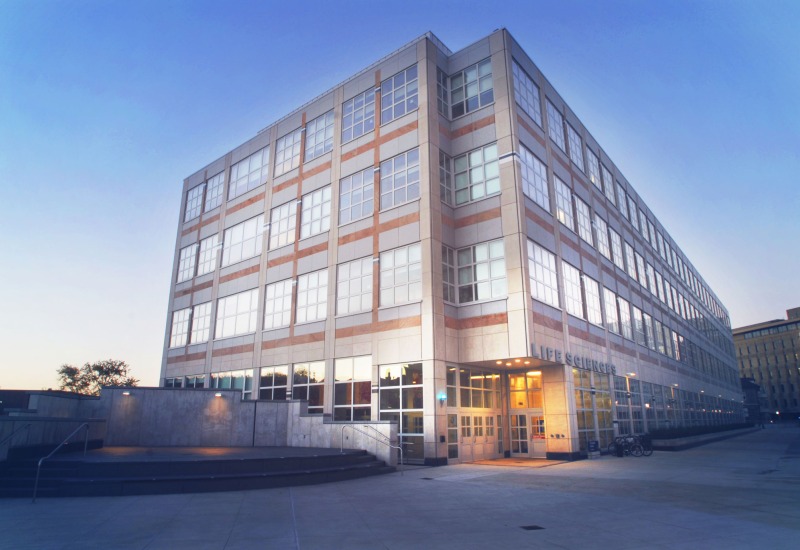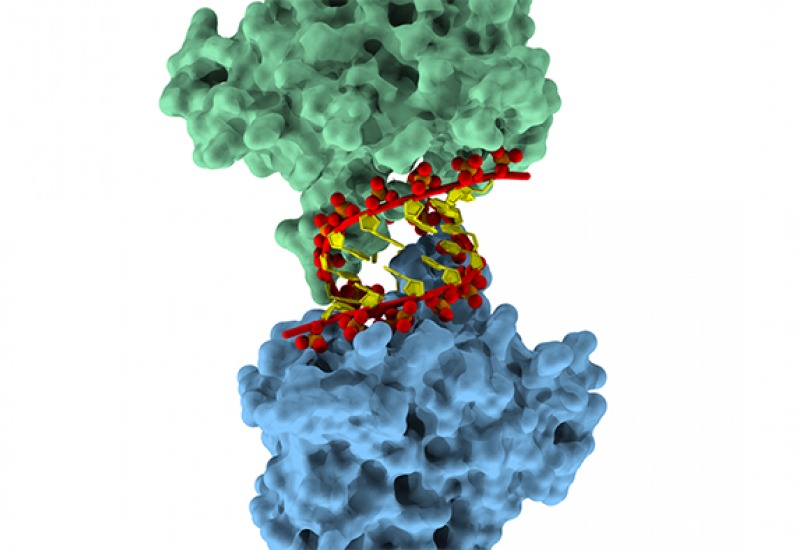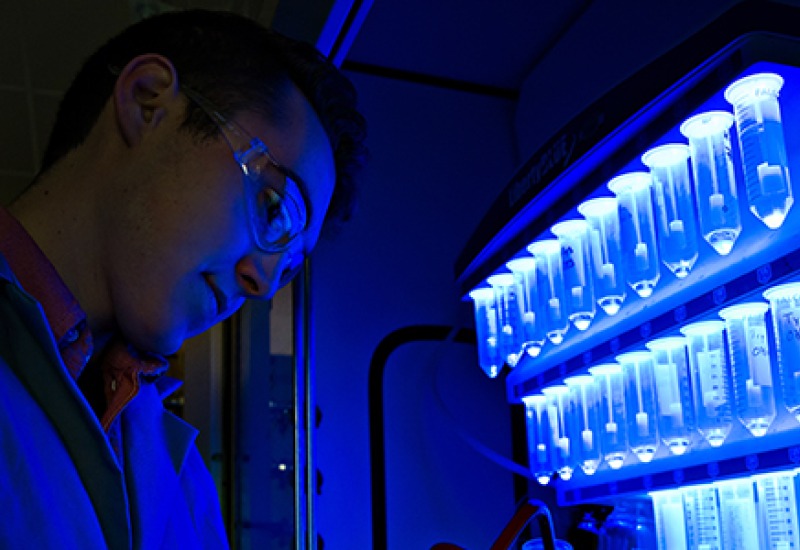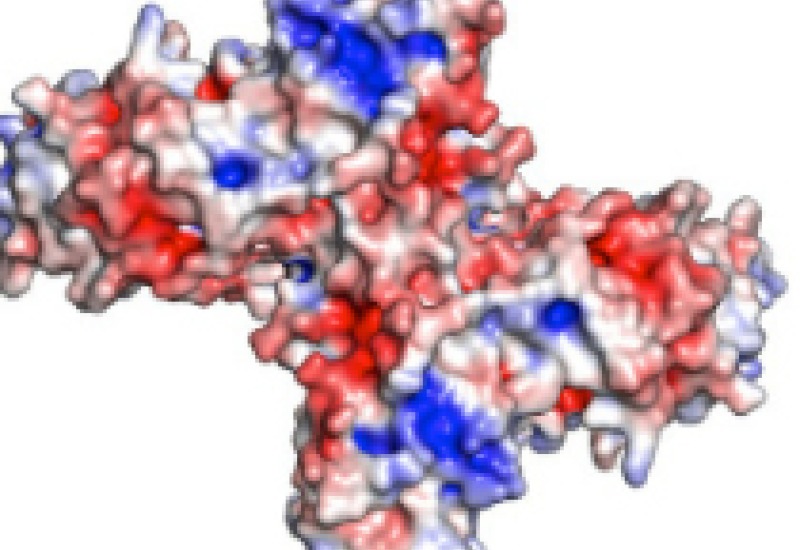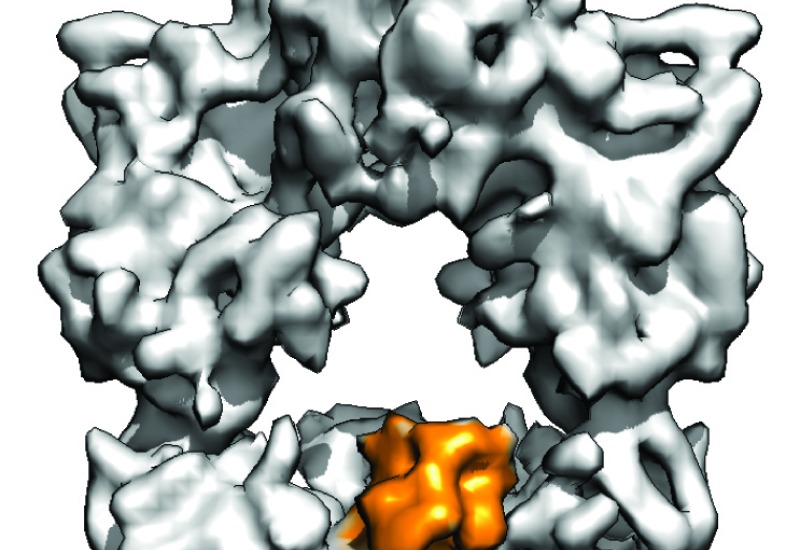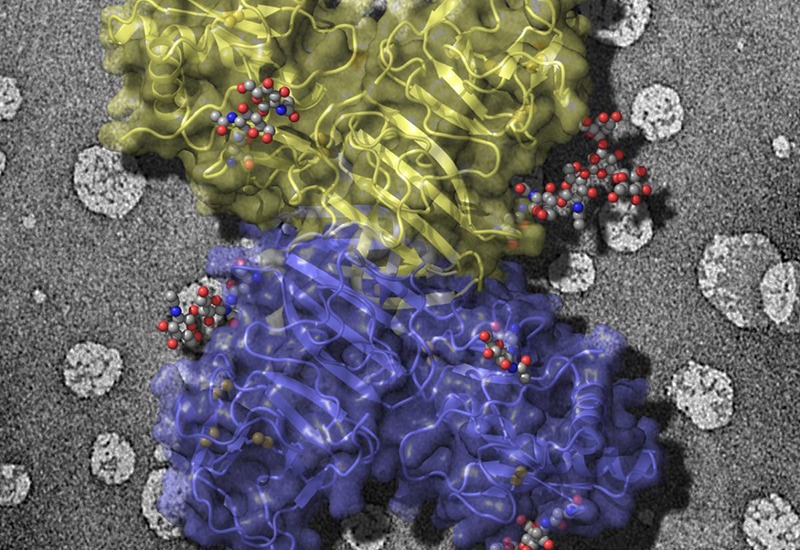U-M research reveals key piece of the machine that bacteria use to build useful natural products
Researchers have discovered how the pieces of one molecular machine inside bacteria fit together, improving scientists’ abilities to recreate this well-evolved machine in the lab.
New research reveals how one antibody blocks dangerous effects of dengue virus infection, offering a potential path to prevention
A team of researchers has discovered an antibody that blocks the dengue virus’s ability to cause disease in mice. The findings open the potential for developing effective treatments and designing a vaccine for dengue and similar diseases.
U-M researchers advance antibody test development to aid in the international fight against COVID-19
U-M scientists are advancing a new antibody test to identify people who have been infected with the novel coronavirus that causes the COVID-19 disease.
New research explains how HIV avoids getting ZAPped
A new study reveals how an antiviral protein in our cells latches onto foreign invaders, and how some viruses — including HIV — evade capture.
Researchers resolve how fungi produce compounds with potential pharmaceutical applications
Researchers have solved a nearly 50-year-old mystery of how fungi produce a large class of bioactive compounds, revealing a chemical reaction reaction that is nearly unprecedented in nature
Scientists discover how proteins interact along metabolic pathway
Research writes new chapter in the story of fatty acid biosynthesis and its potential for new antibiotics and renewable resources
New award recognizes LSI community’s outreach activities
LSI Outreach Awards recognize the value of our community members' efforts to connect research, teaching and service to the public
Biosciences Initiative invests $45M in U-M research
Three ground-breaking LSI projects are among the University of Michigan projects to be funded in the first round of investments from the Biosciences Initiative.
Unpacking ‘nature’s chemical toolbox’: U-M research sheds light on rare transformation
Scientists have determined how microscopic marine bacteria build a chemical compound that has important biological activity — using a chemical transformation rarely seen outside of the lab.
Enzyme's structure reveals how nature performs rare molecular transformations
How one type of enzyme allows a microorganism to produce molecules with a wide range of potentially beneficial activities — from fighting insects to killing fungi.
Form reveals function in new study of HIV-fighting protein
Findings provide clues about how one protein utilizes RNA binding to get into the HIV cell and mutate the virus' DNA.
Pure Science, Pure Michigan
In the last century, Michigan was a driving engine of America’s manufacturing economy. Today, programs like the Perrigo Undergraduate Fellowship at the LSI are helping to fuel a new knowledge-based economy in the state.
Researchers ‘solve’ key Zika virus protein structure
Revealed: the molecular structure of a protein produced by the Zika virus that is thought to be involved in the virus’s reproduction and its interaction with a host’s immune system.
Nature's chem lab: How microorganisms manufacture drugs
Researchers at the LSI have obtained for the first time three-dimensional snapshots of the “assembly line” within microorganisms that naturally produces antibiotics and other drugs.
Decoding dengue and West Nile
A team of scientists at U-M and Purdue University has discovered a key aspect both to how the viruses replicate in the cells of their host and how they manipulate the immune system as they spread.



